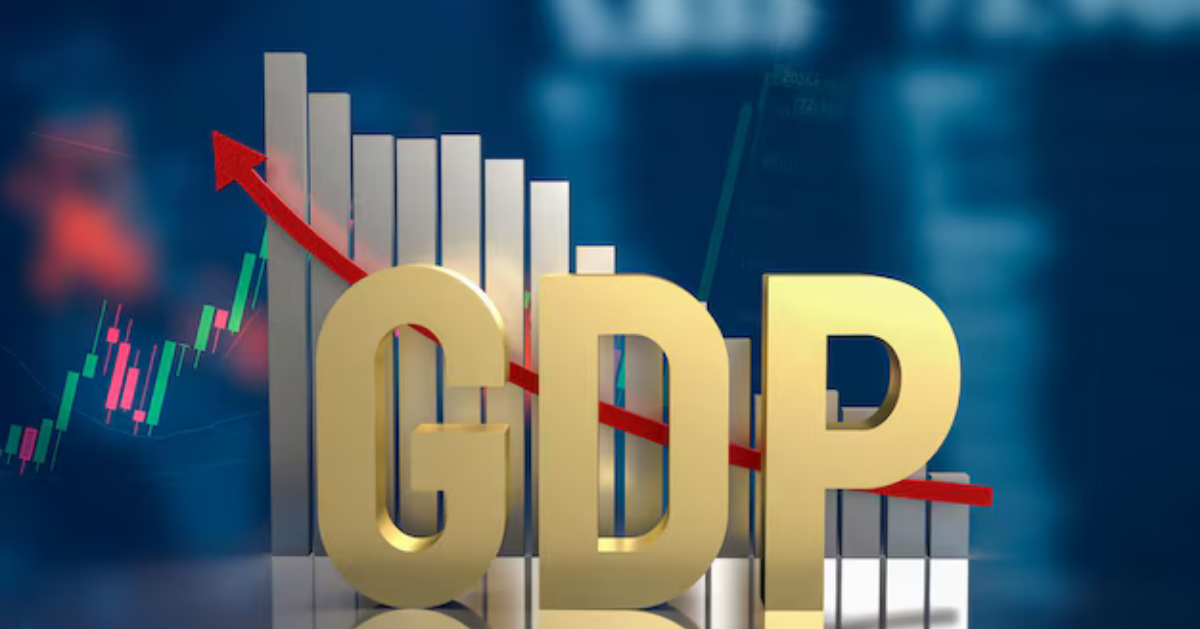Investment
Understanding “GDP – Deleted Scene – E355”: Insights and Analysis

The concept of “GDP – Deleted Scene – E355” may seem cryptic at first, sparking curiosity about its implications in the realms of economics or media. In this article, we’ll delve into this title, offering a structured analysis to clarify its significance and potential meanings. Whether you’re a finance enthusiast, an economics student, or simply curious, this piece will provide insights into what this topic could encompass.
What is GDP? A Quick Overview
Gross Domestic Product, or GDP, is the total monetary value of all goods and services produced within a country’s borders in a specific period. It’s widely regarded as a primary indicator of a nation’s economic health and stability.
GDP’s Role in Economic Analysis
GDP measures economic performance, enabling policymakers to shape fiscal policies and international economic relationships.
Why GDP is Crucial
Understanding GDP helps us see how economic policies affect everyday life, from employment rates to public spending.
Exploring the Concept of “Deleted Scene” in Media and Beyond
“Deleted scenes” are generally segments cut from a final production, often due to pacing, relevance, or thematic alignment. However, the term might take on various interpretations depending on the context.
Significance of Deleted Scenes in Storytelling
These scenes can add layers to a narrative, shedding light on character development, subplot clarification, or thematic depth.
Deleted Scenes as Marketing Elements
In media, releasing deleted scenes can reignite audience interest, especially in film franchises, television series, or promotional campaigns.
Breaking Down “E355”: Possible Interpretations and Contexts
The term “E355” could refer to an episode number, an economic model, or a specific sequence. For instance, it might relate to an economic concept within the context of GDP analysis, a particular scenario in finance, or a creative piece associated with a show, episode, or story.
E355 as an Episode Reference
“E355” could signify a fictional or hypothetical narrative, possibly providing an alternative look at GDP or economic principles.
E355 as an Economic Notation
Some interpret “E355” as an identifier, possibly representing a numerical code related to a financial report, model, or scenario.
E355 in Media or Artistic Production
It could also reference an episode in a series, potentially one featuring a thematic discussion of GDP or economic theory.
What if “GDP – Deleted Scene – E355” Were a Media Piece?
Imagining this title as a media segment invites creative interpretations. For example, an episode named “E355” could be part of a fictional series exploring economic themes, where GDP is dissected in a unique, engaging way.
Could “GDP – Deleted Scene – E355” Add Depth to a Narrative?
In a media format, deleted scenes can offer insight into events or decisions left unaddressed in the main storyline, enriching the audience’s understanding.
The Potential Impact of E355 on Public Perception of Economics
By showcasing economic principles creatively, such media could demystify complex topics like GDP, making them relatable and engaging.
How Does GDP Influence Real-Life Narratives?
GDP’s role in daily life is far-reaching, from job opportunities and wage levels to inflation rates and government spending. Here’s how GDP affects narratives in media and real-world contexts alike.
GDP’s Effect on Public Sentiment
Economic performance influences public confidence, shaping how people view stability, growth, and overall life satisfaction.
The Media’s Role in Shaping GDP Perceptions
News and social media frequently report on GDP trends, creating narratives that influence public understanding of economic policies.
Economic Lessons Through Fictional Episodes: Why E355 Matters
Economics may appear daunting, but creative approaches can make it more accessible. The idea of presenting economic themes in an episode format, as “E355” might suggest, can make complex concepts clearer.
Making Economics Engaging and Relatable
Through narrative techniques, GDP and other economic metrics could become easier to grasp, as stories make abstract ideas feel more concrete.
Using Fiction to Explore Real-Life Economic Scenarios
Fictional episodes allow creators to imagine and analyze economic “what-if” scenarios, creating room for public engagement with economic topics.
Why Deleted Scenes with Economic Themes Could Resonate
Deleted scenes that address economic themes have the potential to introduce fresh perspectives, often tapping into real issues, even if indirectly.
Unpacking “What Could Have Been” in Economic Narratives
Through deleted scenes, viewers can explore hypothetical scenarios, gaining a fuller picture of characters’ motivations or an economy’s inner workings.
Relevance of Alternate Perspectives on GDP and Economics
Such scenes may offer contrasting viewpoints, allowing audiences to see economic policies or principles from multiple angles.
Could “E355” Represent an Economic Case Study?
Economics often uses case studies to break down complex events or policies, and “E355” might represent a fictional economic scenario.
What a Hypothetical “E355” Case Study Could Show
Case studies typically analyze a specific economic event, showcasing its causes, effects, and lessons learned.
Relevance of Economic Case Studies in Understanding GDP
Through these studies, individuals gain insights into how economic policies, measured through GDP, impact a nation.
Deleted Scene Concepts: Bringing Economics to Life
Deleted scenes or hypothetical episodes have the ability to make economics feel dynamic and relevant, bridging the gap between abstract data and real-world application.
Bridging the Gap Between Data and Everyday Life
Episodes like “E355” could illustrate how GDP changes affect communities, showing tangible impacts on individuals.
Stimulating Public Discourse on Economics Through Media
By presenting economic themes creatively, deleted scenes could inspire conversations about public policy, GDP, and financial literacy.
The Role of Hypothetical Narratives in Economics Education
Using a narrative approach to teach economics can help demystify GDP and other key concepts, making them more digestible.
Simplifying Complex Topics for Broader Audiences
Economic terms can seem complicated, but explaining them through storytelling, as in hypothetical episodes, increases accessibility.
GDP as a Central Theme in Hypothetical Narratives
Making GDP the core of a story can help people understand how it impacts them personally, fostering economic awareness.
The Educational Potential of “GDP – Deleted Scene – E355”
Imagining a deleted scene as a learning tool has strong potential, especially in an educational context. Concepts like GDP become more engaging when they’re interwoven into stories.
Turning Economic Analysis into Stories
Story-based approaches could make economics less intimidating, helping students or the general public see GDP’s relevance to their lives.
Creating Learning Opportunities with Hypothetical Scenarios
Hypothetical scenes could allow individuals to visualize different economic outcomes based on real data and trends.
Conclusion
While “GDP – Deleted Scene – E355” might seem like a simple title, it holds layers of potential meaning. By exploring this title, we gain insights into the ways GDP and other economic factors could be creatively introduced to audiences, helping bridge the divide between complex economic data and everyday understanding.
FAQs
What is GDP and why is it important?
GDP represents a nation’s economic health, indicating growth or recession, influencing everything from jobs to public policy.
What do deleted scenes typically add to a narrative?
They can enhance depth, offer alternative views, and provide more detail about characters or themes, often enriching the storyline.
Could “E355” be an educational concept?
Yes, it might serve as a fictional episode or case study, making economic concepts like GDP relatable.
How do hypothetical episodes teach economics?
Through creative narratives, they illustrate economic principles, making abstract ideas more tangible.
Why are deleted scenes often reintroduced to audiences?
They can add value, generate excitement, and provide new insights into a story, sparking renewed interest in the content.


















